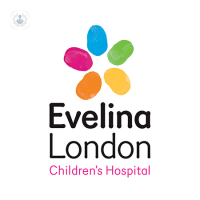Heart murmur in children
Dr Nitha Naqvi - Paediatric cardiology
Created on: 11-07-2017
Updated on: 10-11-2024
Edited by: Kate Forristal
What is a heart murmur in children?
Heart murmurs are whooshing sounds that the heart makes during the cycle of a heartbeat. The sounds can be heard with a stethoscope. A normal heartbeat makes two sounds, a “lubb and a dupp” sound when the valves open and close. A heart murmur is an extra sound that the heart makes as blood passes through it.
Heart murmurs can be present at birth (congenital) or develop later in life and may indicate an underlying heart condition.
What are the symptoms of a heart murmur?
Most heart murmurs are harmless and won’t have any other signs or symptoms.
If the following symptoms are present alongside the heart murmur, it may be indicative of a heart problem:
- Blue skin, in particular, the fingertips and the lips
- Swelling
- Difficulty breathing
- Chronic cough
- Chest pain
- Enlarged veins in the neck
- Poor appetite and growth failure
- Dizziness and fainting
How is a heart murmur diagnosed?
A heart murmur can be diagnosed using a stethoscope to listen to the heart. Heart murmurs can be graded on a scale of 1 to 6, where 1 is a very soft sound and 6 is very loud. The child may be referred to a paediatric cardiologist if the heart murmur is thought to be a sign of an underlying heart condition.
The following tests may be carried out if the murmur is abnormal:
- A chest X-ray
- An ECG to record the electrical activity of the heart
- An echocardiogram
What causes a heart murmur?
Heart murmurs can be innocent or abnormal. Most newborns and children have innocent heart murmurs, which mean that they have a normal heart. Innocent heart murmurs occur when blood is moving more quickly through the heart due to:
- Exercise
- Fever
- Anaemia, where red blood cells that carry oxygen in the blood are in short supply
- Hyperthyroidism, whereby there is too much thyroid hormone in the blood
Children with an abnormal heart murmur, usually have it due to congenital heart disease or heart defects. The most common congenital heart defects that lead to heart murmurs include:
- A hole in the heart; these are known as septal defects and may or may not be serious depending on the size of the hole and where it is.
- Heart valve abnormalities; valves don’t open enough to allow enough blood to flow through them (stenosis) or they don’t close properly and leak (regurgitation).
- Heart muscle disorders (cardiomyopathy), the heart muscle is too thick or weak and can’t pump blood effectively.
- Valve calcification; hardening or thickening of the valves, (mitral stenosis or aortic valve stenosis) which is more common in older children. The valves become narrow and make it difficult for blood to flow through the heart, causing heart murmurs.
- Endocarditis; an infection of the inner lining of the heart that occurs when bacteria from another part of your body spread into the bloodstream and goes to the heart, damaging heart valves.
- Rheumatic fever; this can occur when a child doesn’t receive adequate treatment for a strep throat infection, the infection can affect heart valves and damage proper blood flow through the heart.
Can a heart murmur be prevented?
Although not much can be done to prevent heart murmurs, certain steps can be taken during pregnancy to help reduce your baby’s chances of developing a heart murmur:
- Controlling any medical condition like diabetes during pregnancy is vital to reduce your baby’s chances of developing heart problems. Women with rubella or PKU also have a higher risk of having a baby with a heart defect.
- Avoiding certain medications and illegal drugs and alcohol lowers the risk of heart murmurs in the baby.
How is a heart murmur treated?
Treatment depends largely on the underlying cause of the heart murmur. Most heart murmurs are normal and will go away as the child grows, however, if other symptoms are present and congenital heart defects are suspected, your doctor will go through the next steps with you and treat the underlying heart condition accordingly.











